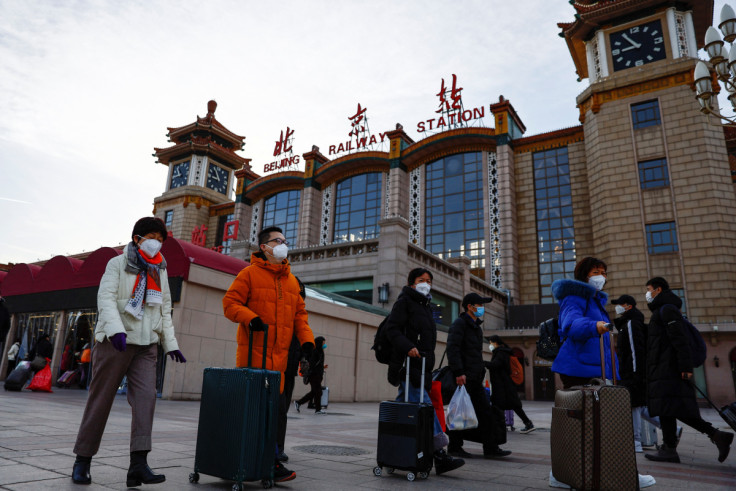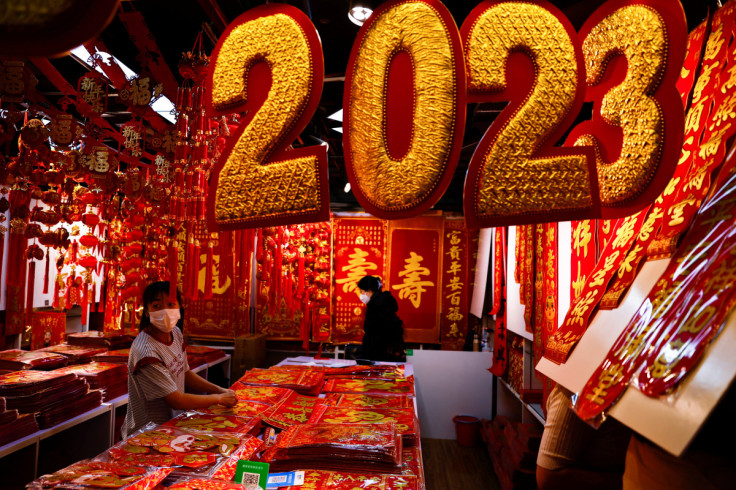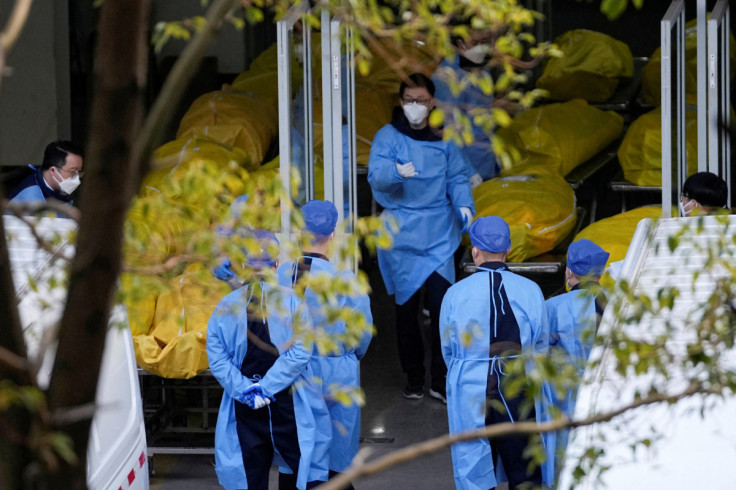WHO Working With China On Lunar New Year COVID Risks

The World Health Organization said it is working with China to manage the risks of COVID-19 surging again as people travel for Lunar New Year celebrations but the country's response continues to be challenged by a lack of data.
COVID-19 is spreading unchecked in China after the country lifted its zero-COVID policy in December, but the WHO said it still does not have enough information from China to make a full assessment of the dangers of the surge.
That is also an issue in working with China on how to mitigate the risks of travel ahead of the Lunar New Year public holiday, which officially runs from Jan. 21, the WHO said. The holiday was known pre-pandemic as the world's largest annual migration of people.
"We've been working with our China colleagues," said Abdi Rahman Mahamud, director of the WHO's alert & response coordination department, who said the country has a number of strategies around people travelling from high-risk to low-risk areas as well as around testing and clinics.
"But to understand better we require that data," he added.
The WHO also said China is still heavily underreporting deaths from COVID-19, although it is now providing more information on its outbreak.
"There are some very important information gaps that we are working with China to fill," said COVID-19 technical lead, Maria Van Kerkhove.
China says it has been transparent with its COVID-19 data.
The country's National Health Commission said Chinese officials had exchanged views with the WHO earlier on Wednesday in a video conference on issues including the current epidemic situation, medical treatment, vaccination and other technical matters.
VARIANT
The WHO also said it would soon publish a risk assessment on the XBB.1.5 Omicron variant that is driving an uptick of COVID cases in the United States.
Emergencies director Mike Ryan praised the United States for the "radical transparency" of its data on the variant's spread.
He said that was one reason why the WHO has not backed measures to monitor incoming travellers from the United States, while it has described as "understandable" similar steps taken by some countries for travellers from China, including COVID-19 testing and wastewater monitoring.
"I really think you just cannot compare these two situations," he said.


© Copyright Thomson Reuters 2024. All rights reserved.











